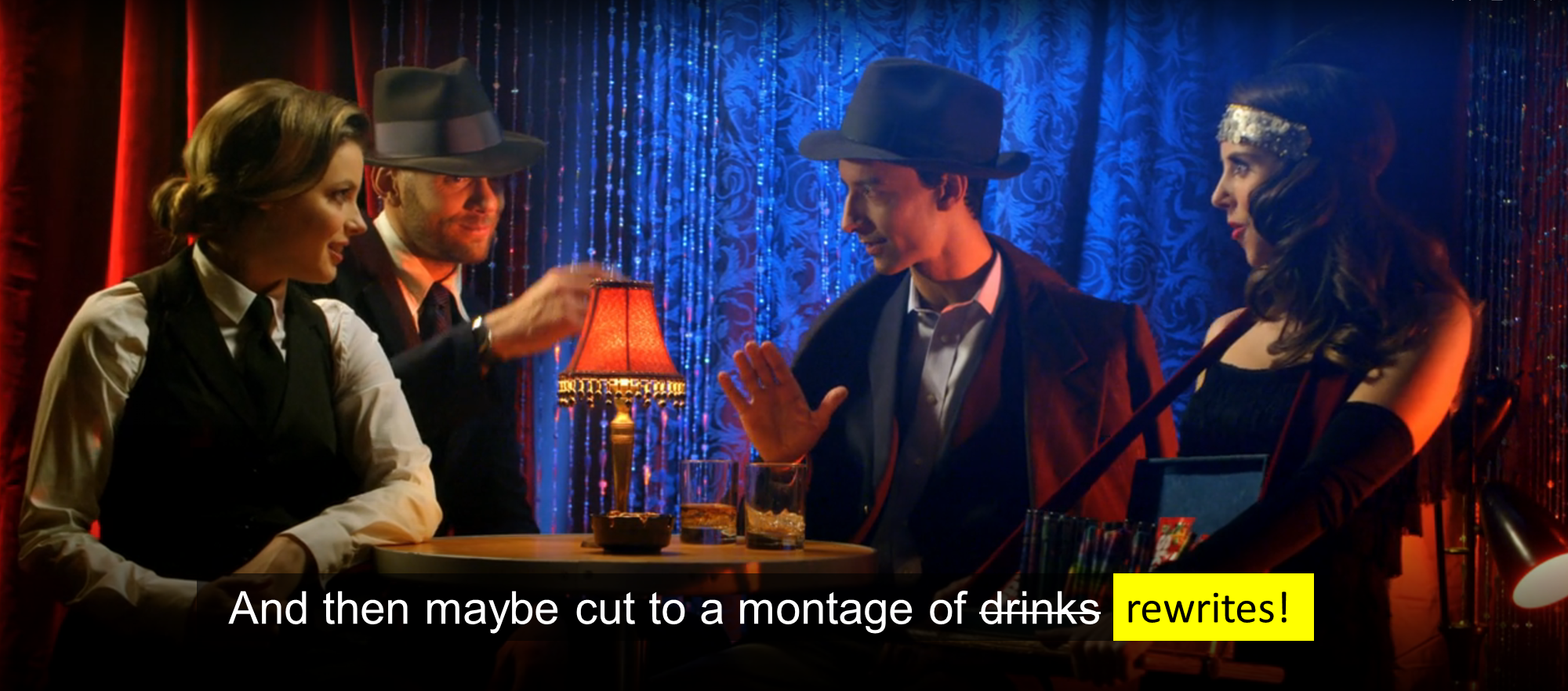A Montage of Rewrites
The first draft of Spacewalker was complete and it had lots of problems. The main character had the most tepid of arcs. I waxed philosophical on scientific concepts to the detriment of the narrative. Conversations and exposition meandered. The plot was convoluted, especially in the first half. The supporting characters all spoke with the same voice, despite diverse professions and backgrounds.
Any of these issues alone can be enough to kill one's interest in a story, mark it DNF, and move on. I had problems in all of these areas in spades, so I went to work almost immediately on writing a second draft. The plot was the lowest hanging fruit, so my second draft hit that hard. In many ways, I knew I was punting on much-needed character work for a future rewrite.
April 2019
I engaged my beta readers once the second draft was complete. Some of them helped me with the first draft, some of them were new to the story. One of the newcomers was a friend who reads a lot--we'd traded science fiction recommendations over the years--so I was especially interested in his insights. After I made the request, he went dark for a while. Maybe he'd read a chapter or two and didn't like it. Maybe he'd just forgotten.
Well, he didn't forget. A couple months later, out of the blue, I got this (roughly paraphrased) message.
I finished it. I get what you're trying to do in a lot of places, but I really don't like the main character and it hurt my ability to enjoy the rest of the story. Let's talk more.
Oof. Ouch. Tough but fair. We made time for a long conversation over a few beers. It reinforced a lot of the items on my punch list, including reworking the main character's arc. It also laid bare one of the problems I'd been dancing around for a while--I'd gotten through two drafts writing by the seat of my pants without any understanding of story structure and how plot and character should intertwine.
Here, in the very boring movie of my life, we insert a montage of me researching and rewriting.

- Cut to scrolling endlessly through blogs describing character theory and archetypes.
- Cut to my bloodshot eyes at 2:00 AM on a work night filling out a character bible.
- Cut to the post-it notes on my living room wall outlining planned changes.
- Cut to me pacing from room-to-room talking myself through a scene because I couldn't make sense of it inside my own head.
- Cut to me putting everything on hold to move into a new house!
- Cut to a pandemic. Yikes.
I learned a lot over those long months and, empowered by new knowledge, made a lot of changes to Spacewalker. Impostor syndrome set in as I wrapped up that third draft. Why in the world did I think I could write a fiction novel? I'd learned so much and never doubted myself more!
By this time, I was finally recognizing my troupe of beta readers as the precious resource that they were, and I was afraid to engage them with a draft I wasn't yet confident in. I needed a measuring stick to help me make that determination. Thanks to a timely episode of Joanna Penn's podcast The Creative Penn, I found just the tool I needed in Larry Brooks' book Great Stories Don't Write Themselves.
I devoured Larry's book and suddenly I found a path forward. For just a little while, I needed to put my creative brain on hold and let my engineering mindset lead. I was going to build a Story Validation Checklist.